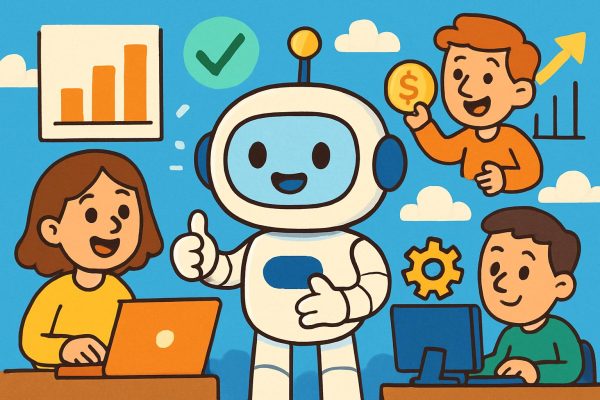AI companions represent a rapidly evolving technology that offers 24/7 interaction through text, voice, and even augmented reality. These AI “friends” can learn user preferences, engage in complex conversations, and provide customizable relationships ranging from friendship to romantic partnership. Could this tech offer support with mental health, social anxiety, and loneliness? Could users fall victim to data privacy, predatory monetization, and psychological harm? Could it help improve connection with other humans, or lead to further disconnection? The answer to all those questions is “yes”.
In today’s world, loneliness is a growing concern, and some people are turning to AI chatbots for companionship. An article by James Muldoon on The Conversation delves into this trend, highlighting how AI-powered chatbots are becoming an integral part of many people’s lives. These chatbots, like Nomi.ai and Replika, offer users the ability to create virtual companions that can act as friends, mentors, or romantic partners. The technology is driven by large language models (LLMs) that learn from user interactions to provide personalized experiences.
How It Works
Users can customize their AI companions by selecting avatars, personality traits, and backstories. Over time, the AI learns more about the user, tailoring conversations to suit their preferences. Interaction is primarily text-based, but options for voice, video, and virtual reality are expanding. Advanced models even allow for real-time voice calls and augmented reality projections of avatars.
Benefits
- AI companions provide a non-judgmental space for users to express themselves, offering a sense of understanding and support.
- They can be particularly beneficial for individuals with social anxiety or neurodivergent conditions, offering a safe space for interaction.
- For some, these AI interactions can serve as a form of self-care, akin to the companionship provided by pets.
Concerns
- Data privacy is a significant issue, with many apps sharing or selling user data to third parties.
- The addictive nature of these interactions can lead to users becoming overly reliant on AI companions, potentially impacting real-world relationships.
- There is a risk of chatbots providing inappropriate advice or encouragement, as seen in some troubling cases.
Possible Business Use Cases
- Create a platform that offers AI companions specifically designed for elderly users, focusing on companionship and cognitive engagement.
- Develop an AI-driven mental health app that provides support and resources while ensuring user data privacy and security.
- Launch a service that integrates AI companions with smart home devices, offering users a seamless, interactive home experience.
As AI companions become more integrated into our lives, we must consider their impact. How will these virtual relationships shape our interactions with real people, and what ethical considerations should guide their development?
Image Credit: DALL-E
—
I consult with clients on generative AI infused branding, web design and digital marketing to help them generate leads, boost sales, increase efficiency & spark creativity. You can learn more and book a call at https://www.projectfresh.com/consulting.




